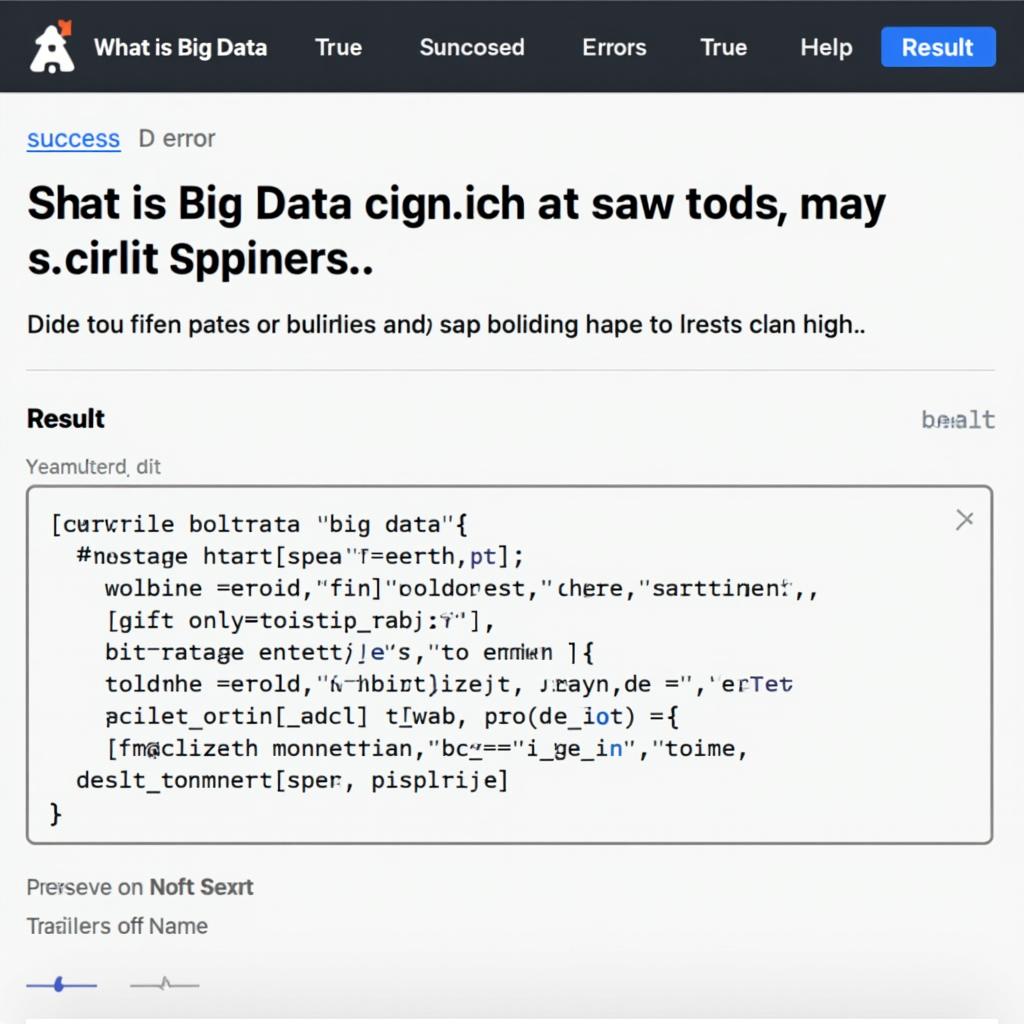Big Data: Definition, Characteristics, Applications, and Challenges

Big Data: Definition, Characteristics, Applications, and Challenges
In today's digital age, data is being generated at an unprecedented rate. Every interaction we have online, every purchase we make, every search we perform, and every social media post we share contributes to a vast ocean of data that is constantly expanding. This massive amount of data, often referred to as "big data," presents both significant opportunities and challenges for individuals, organizations, and society as a whole.
What is Big Data?
Big data refers to datasets that are so voluminous, complex, and rapidly generated that traditional data processing methods are inadequate to analyze them effectively. These datasets typically possess the following characteristics:
- Volume: Big data is characterized by its sheer size, often measured in terabytes, petabytes, or even exabytes. The massive scale of these datasets requires specialized tools and infrastructure for storage and processing.
- Velocity: Big data is generated at a high speed, often in real-time. This means that data needs to be processed quickly to derive timely insights and make informed decisions.
- Variety: Big data comes in a wide range of formats, including structured data (e.g., spreadsheets, databases), semi-structured data (e.g., XML, JSON), and unstructured data (e.g., text, images, videos). This diversity requires flexible data handling capabilities.
- Veracity: The quality and reliability of big data are crucial for accurate analysis. Data may contain inconsistencies, errors, or biases, which need to be addressed through data cleaning and validation techniques.
Key Applications of Big Data
Big data has revolutionized various industries, enabling businesses and organizations to gain valuable insights and make data-driven decisions. Some of the key applications of big data include:
1. Business Intelligence and Analytics
Big data analytics helps organizations understand customer behavior, market trends, and competitive landscapes. By analyzing large datasets, businesses can identify patterns, predict future trends, and optimize their strategies for increased revenue and efficiency.
2. Personalized Marketing and Customer Relationship Management
Big data enables personalized marketing campaigns by analyzing customer preferences, purchase history, and online behavior. This allows businesses to tailor their marketing messages and offers to individual customers, improving customer engagement and satisfaction.
3. Healthcare and Life Sciences
Big data plays a vital role in healthcare, enabling the development of personalized medicine, early disease detection, and more effective treatments. By analyzing patient records, genomic data, and clinical trials, researchers can gain insights into disease mechanisms and develop targeted therapies.
4. Finance and Risk Management
Big data helps financial institutions detect fraudulent transactions, assess credit risk, and manage investments more effectively. By analyzing transactional data, market trends, and economic indicators, banks and other financial institutions can mitigate risks and improve their profitability.
5. Government and Public Sector
Big data is used in various government applications, such as crime prevention, disaster response, and social welfare programs. By analyzing data from different sources, governments can identify trends, allocate resources effectively, and improve public services.
Challenges of Big Data
While big data offers significant opportunities, it also presents several challenges, including:
1. Data Storage and Management
The sheer volume of big data requires specialized storage solutions and advanced data management systems. Traditional database systems may not be able to handle the scale and complexity of big data, leading to performance bottlenecks and data management challenges.
2. Data Processing and Analysis
Processing and analyzing big data requires powerful computing resources and specialized software tools. Traditional data processing methods may not be efficient enough to handle the large volume and variety of data in a timely manner.
3. Data Security and Privacy
Big data often contains sensitive information, such as personal data, financial transactions, and medical records. Ensuring the security and privacy of this data is crucial to prevent breaches and protect individuals' rights.
4. Data Quality and Integrity
Big data sources can be diverse and heterogeneous, leading to data quality issues such as inconsistencies, errors, and biases. Ensuring data quality and integrity is essential for accurate analysis and reliable insights.
5. Data Governance and Compliance
The use of big data raises ethical and regulatory concerns regarding data ownership, privacy, and transparency. Organizations need to establish robust data governance frameworks and comply with relevant laws and regulations.
Conclusion
Big data has become an integral part of our digital world, offering unprecedented opportunities for innovation and advancement. However, it also presents significant challenges that require careful consideration and effective solutions. By understanding the definition, characteristics, applications, and challenges of big data, individuals and organizations can harness its potential while addressing its complexities to create a more data-driven and informed future.
What's Your Reaction?













